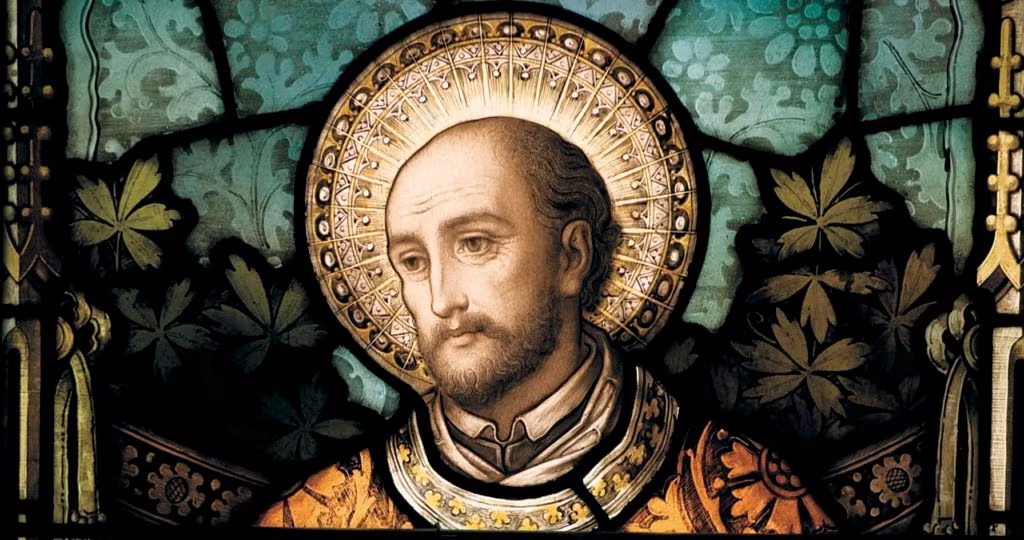July 31 is the Feast of Saint Ignatius of Loyola, founder of the Society of Jesus, also called the Jesuits. In 1540, in a chapel in Montmartre outside Paris, Ignatius and six companions started the Society of Jesus, pledging vows of poverty, chastity, and obedience, which were standard to religious orders of the time. However, Ignatius added a fourth vow, which was obedience to the pope. This commitment gave the order a special mission of dedication to the pope’s projects and established the Jesuits as leaders in the Counter-Reformation revival of Catholicism.
Born to minor nobility in the Basque region of Spain, Ignatius became a soldier as a young man and is said to have pursued worldly glory until an injury in battle led to a convalescence in which he read nothing but biblical stories. It was during that time that Ignatius was awakened to Christ and the call to religious life. It was also a time when he discovered how to utilize his imagination to contemplate the Gospels, a practice that eventually formed the basis for his Spiritual Exercises.
Although Ignatius made a drastic shift from idolizing legendary knights to admiring great saints like Francis of Assisi, it wasn’t until a visit to the Benedictine monastery of Santa Maria de Montserrat that he made a Franciscan-like renunciation of the world, accompanied by a full examination of conscience and confession of his sins. There, at the monastery, he donated his fine clothing to the poor, donned a garment of sackcloth, and prayed an overnight vigil that culminated in leaving his sword at the altar as a symbol of moving beyond worldly honors to a life of peace and Christian leadership.
Click here to subscribe to our weekly newsletter.
Translating the zeal of his military background as a soldier to the spiritual life, Ignatius wrote in the founding document of the Society of Jesus that the order was being established for “whoever desires to serve as a soldier of God, to strive especially for the defense and propagation of the faith, and for the progress of souls in Christian life and doctrine.”
Ignatius and his companions started schools, colleges, and seminaries to re-evangelize Europe, and they made the first efforts that became the seed of the order’s extensive missionary work around the world.
When St. Francis Xavier, a good friend to St. Ignatius and one of those first six companions who helped him start the Society of Jesus, was about to embark on a mission to India, Ignatius penned a letter to him in which he famously wrote, “Ite, inflammate omnia,” which translates to, “Go, set the world on fire.” It’s a phrase still used today that captures the Jesuit ethos of evangelization and harkens back to the zeal of the order’s earliest days.
Today, the Jesuits remain at the forefront of evangelization through their work in education, operating schools at every level and helping people from all walks of life worldwide. Their motto is “Ad maiorem Dei glorium,” which means, “For the greater glory of God.” It’s a beautiful sentiment that pays tribute to the change that took place in the heart of St. Ignatius when his desire for glory became only about God. May stories of his zeal for the faith inspire all those working in the mission he set in motion nearly 500 years ago, so they can be renewed in all they do and set the world on fire for Christ once again.
For free copies of the Christopher News Note ANSWERING GOD’S CALL, write: The Christophers, 264 West 40th Street, Room 603, New York, NY 10018; or e-mail: mail@christophers.org







